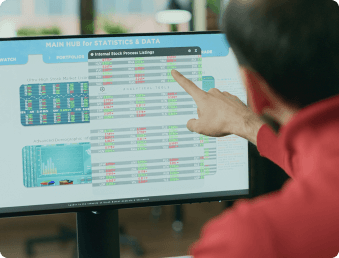Online Trading for Beginners
Online trading can be a rewarding endeavor, but it's crucial for beginners to approach it with caution and a solid understanding of the basics with https://aforexuniversity.com
Here's a guide for beginners getting started with online trading:

1. Educate Yourself:
Learn the Basics: Familiarize yourself with basic financial terms, market types (e.g., stocks, forex, commodities), and trading terminology.
Understand Risk and Reward: Recognize the inherent risks in trading and the potential for both gains and losses.
2. Choose the Right Broker:
Research and Comparison: Take the time to research different online brokers. Compare fees, available markets, user interfaces, customer service, and educational resources.
Regulation: Ensure that the chosen broker is regulated by a reputable financial authority.
3. Set Realistic Goals
Define Objectives: Determine your financial goals and risk tolerance. Are you looking for short-term gains or long-term investments?
4. Create a Trading Plan
Develop a Strategy: Establish a clear trading strategy based on your goals, risk tolerance, and market analysis.
Risk Management: Implement risk management practices, including setting stop-loss orders to limit potential losses.

5. Start Small
Practice with a Demo Account: Many brokers offer demo accounts where you can practice trading with virtual money. This helps you understand the platform and test your strategies without risking real funds.
6. Stay Informed
Market Research: Regularly follow financial news, market trends, and economic indicators to make informed trading decisions.
Company Analysis: If you're trading stocks, research the fundamentals of the companies you're interested in.

7. Diversify Your Investments
Spread Risk: Avoid putting all your funds into one asset or market. Diversification helps mitigate risk.
8. Understand the Platform
Familiarize Yourself: Take the time to understand the trading platform. Know how to place orders, set stop-loss orders, and monitor your portfolio.

9. Monitor and Evaluate
Regularly Review Your Portfolio: Assess the performance of your investments regularly. Be ready to adjust your strategy if necessary.
Keep Learning: The financial markets are dynamic. Stay open to learning and adapting your approach based on experience.

10. Control Emotions
Stay Disciplined: Emotions can cloud judgment. Stick to your trading plan and avoid making impulsive decisions.
Accept Losses: Losses are a part of trading. Learn from them rather than letting emotions drive your decisions.
11. Security Measures
Use Secure Practices: Implement strong passwords, enable two-factor authentication, and be cautious about sharing personal information.
12. Seek Professional Advice
Consult Financial Advisors: If possible, consult with financial advisors to get personalized advice based on your financial situation and goals.
Remember, online trading involves risk, and it's important to only invest what you can afford to lose. Continuously educate yourself, stay disciplined, and be patient as you gain experience in the world of online trading.


